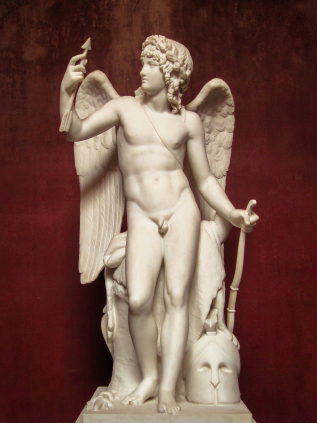Burgess “Cupid” called on to help
 It was a bit early for Valentine’s Day, but Gettysburg Burgess William G. Weaver was called on to serve a cupid in January 1950.
It was a bit early for Valentine’s Day, but Gettysburg Burgess William G. Weaver was called on to serve a cupid in January 1950.
He announced at a meeting that he had received a letter addressed to the “Burgermeister” of “Gettysburgh.” The letter was “printed in German script,” according to the Gettysburg Times and was from two women in Hamburg, Germany.
Amelie Schmidt, 48, and Margarethe Lange, 45, wanted to correspond with single men in Adams County. Schmidt wrote that she weighed 170 pounds and Lange wrote that she weighed 155 pounds. Both women said that they were good cooks and housekeepers and they included pictures with the letters. However, since the women only spoke German, any interested male needed to be able to read and write German.
“Through a somewhat sketchy interpretation of it, the burgess deduced that the two women think they would like the United States much better than Germany, and would like to come here,” the Gettysburg Times reported.
Weaver announced a week later that he had gotten his first “nibble” from a man interested in the “friendship circle.” It didn’t come from an Adams County man, though. An unnamed Carlisle man called the burgess asking for the names and addresses of Lange and Schmidt.
“Adams county men may be more cautious, or maybe they haven’t got around to inquiring yet, but the female of the species has not been backward about expressing opinions,” the newspaper reported.
Weaver said that he had also received calls from two women who were outraged that Weaver announced the letter and its contents. Weaver told the newspaper that the gist of the calls was, “We’ve got enough old maids in Adams county now, we don’t need any more.”
The mail-order bride industry can trace its roots in the United States to the American West. The number of men in the West far outnumbered the women so it was difficult for men to find themselves wives.
Asian workers would arrange with a mail-order bride service for brides to come from China or other Asian countries to marry them. It was the business version of arranged marriages.
Successful western farmers and businessmen would write to churches and family in the East or ran advertisements looking for wives. The women would write and send pictures and a courtship would take place via mail until the women agreed to marry a man they had never met in person. They were willing to do this as a way to gain financial security and even explore life on the frontier.
The 1950 incident wasn’t the first time that the Gettysburg burgess had been asked to help arrange marriages. In the lead up to the 50th anniversary of the Battle of Gettysburg in 1913, a resident of St. James, Mo., wrote to Burgess J. A. Holtzworth in late May. He noted that he and a group of four or five other Missouri veterans were coming to Gettysburg for the reunion. They aged veterans were hoping that the burgess could direct them toward some single women.
The Missourian wrote, “…if you have got a few good widows or old maids who would like to marry and go west, we can accommodate a few. They must be good housekeepers and not too young.”
The Gettysburg Times reported that the burgess would forward the names and contact information of any women who were interested in applying “for the position of unsalaried housekeeper.”
It’s wasn’t reported whether the burgesses had any success in arranging marriages.
Some other Gettysburg stories that you might like:
Farm wife kept secret from Confederate occupiers
Where fairy tales came to life (Part 1)
Small-town high school students prepare for the journey of a lifetime in the middle of the Great Depression (Part 1)





